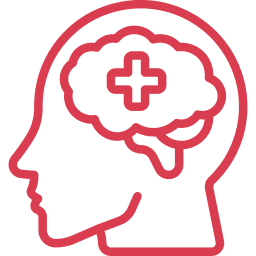Trauma & PTSD
Trauma & Post-Traumatic Stress Disorder services offered in Doylestown and King Of Prussia, PA

Overcoming Trauma can be Difficult
Few people can go through life without encountering some kind of trauma. Unlike ordinary hardships, traumatic events tend to be sudden, unpredictable, involve a serious threat to life or safety, and feel beyond a person's control. If you feel like you've experienced trauma, we can help. Our professional team has helped hundreds of patients experiencing trauma feel better and like they're back in control.


Signs & Symptoms of Trauma & PTSD
Going through a traumatic event can be life-changing. The aftermath may have you feeling things you never thought you'd experience. Whether it's negative thoughts, nightmares, flashbacks, or increased anxiety, P.S. Psychiatry is here to help you navigate your Mental Health. We know that talking about traumatic events can be difficult, so to help, below is a list of common signs and symptoms you might be experiencing.

Easily Startled: You might notice that you’re a bit jumpier or quicker to get scared or surprised. This can occur in any environment.

Always on Guard: Also known as “hypervigilance,” you’re always aware of your surroundings. You may also prefer to sit with your back against a wall.

Trouble Sleeping: This can be falling asleep, staying asleep, or even waking up. Nightmares or intrusive thoughts while you rest are common.

Difficulty Concentrating: You’ve noticed that your mind tends to wander or intrusive thoughts about the traumatic event prevent you from staying focused.

Irritability: Trauma and/or PTSD may make you feel like you have a “shorter fuse” and tend to snap at people more quickly.

Guilt or Shame: Guilt and shame can surround many types of traumas. Blaming yourself and feeling like you did something wrong despite being a victim.

Physical Symptoms: Trauma can leave your body experiencing many different things, from stomach aches to tense muscles.

Treatment Options
We understand that Trauma and PTSD can be difficult to discuss and address. You've probably already tried things to help yourself, but if you're still looking for some help, below are a few things that can help get you back on track.

Medication: A prescription from your P.S. Psychiatry provider can help reduce some of the symptoms of trauma or PTSD.

EMDR: EMDR is a specialized therapy to help reprocess your negative thoughts surrounding the trauma to help you feel less distressed.

Therapy: Talking with a therapist is a great place to learn strategies to process your experiences and learn new coping strategies.

We're Here to Help
When you’re ready to talk, we’re ready to listen. Tap the button below to get in touch with P.S. Psychiatry and schedule your appointment.